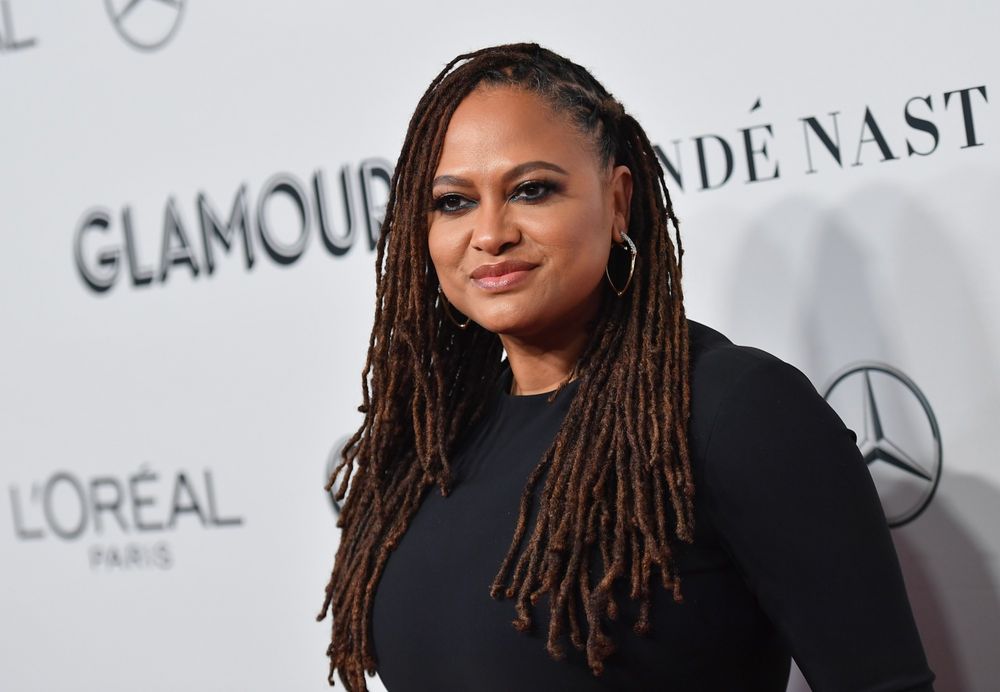When They See Us is one of the most gripping, haunting, masterfully executed dramatic miniseries ever made, let alone released in 2019. Lupita Nyong’o transformed into two different people — a truly terrifying villain and a frightened protagonist, both with layered secrets — in Jordan Peele’s Us. Zendaya showed heavyweight acting chops as a recovering teenage addict in HBO’s Euphoria. But these three performances and projects have something in common beyond being transformative in their own right: When it was time for the Hollywood Foreign Press Association to issue its 2019 Golden Globe nominations, they all became invisible.
And they’re not alone. Billy Porter (Pose), Cynthia Erivo (Harriet), and Eddie Murphy (Dolemite Is My Name) are the only Black actors nominated for any award — out of 70 nominations across 14 categories. No women were nominated for their directing work; in fact, because the television and limited series categories didn’t recognize directors, Ava DuVernay wasn’t even eligible for her work on the aforementioned When They See Us. While this isn’t anything new for most award shows, the Golden Globes has emerged in recent years as the show more likely to embrace Black creatives, making this year’s nominations more surprising. (Erivo and Beyoncé both got best original song nominations for Harriet and The Lion King — the same get-out-of-jail-free card that award voters have deployed for everything from Mahogany to Marshall.) It’s a stark reminder that even when White award shows acknowledge Black work, projects and performers addressing issues that may make the general voting populace uncomfortable are often left on the outside looking in.
Even those occasional acknowledgements have been a long time coming. Award shows have ignored Black artists for decades — but that phenomenon finally became an issue in the 2010s. The Whiteness of the 2015 Oscars famously led to April Reign’s viral #OscarsSoWhite campaign, and a newfound desire to make these awards more inclusive. This year’s Globe nominations, usually considered a precursor for the Oscars, are a reminder that diversity and inclusion are so easily discarded in any given year.
I’ve long been a proponent of the idea that Black people should ignore White award shows because they simply don’t reflect the actual cultural impact and contributions of Black art. (Hell, I’ve written about it more times than I can count.) Beyoncé dropped two genre-defining albums this decade and didn’t win any album of the year Grammys. Neither did Drake, Kendrick Lamar, Jay-Z, or any other Black artist. Spike Lee just won his very first Academy Award in 2019 — after directing more than 20 feature films, half of which arguably deserved some Oscar hardware. Angela Bassett has only been nominated for one Oscar, and that was 25 years ago. (It was also for playing Tina Turner in What’s Love Got to Do With It; if there’s anything that convinces voters to award Black actors, it’s for playing other famous Black folks.) And 1961’s A Raisin in the Sun? Not a single nomination.
Most of the iconic Black works of art through history are award-less, and that fact became especially illuminated in the past decade as Black culture asserted itself firmly at the forefront of American culture. Get Out, despite being the most talked-about movie of 2017, didn’t win best picture. (No shots at Guillermo del Toro, but Jordan Peele’s best original screenplay win was hardly consolation in a year when Aquaman, But Dramatic took the prize.) Black Panther, a film that elevated the comic book movie genre and broke box-office records, was essentially shut out of the Oscars. But a funny thing happened on the way to White award shows’ determination to stay White: We stopped considering mainstream awards the arbiter of Black excellence.
The praise and adoration we give Black brilliance — combined with the influence we have on digital culture as a whole — creates deeper, more enduring legacies than any mainstream award show. Yesterday, Lupita and Zendaya were trending on social media higher than the Golden Globes themselves. Your auntie can probably quote Angela Bassett’s unforgettable improvised clothes-burning scene from Waiting to Exhale word for word, but so can a generation of Black Twitter that references the scene in GIFs and jokes every day. The way she is beloved for that performance 24 years later, and how we revere her greatness through present-day means, is the true award of greatness.
That’s how Black folks reward our own legends. It’s a celebration of greatness more impassioned, more loyal, than any collection of gatekeepers can bestow. While White award shows are trying their best to exclude deserving Black works, we are embracing these same achievements as touchstones of our culture in ways that White folks simply won’t be able to fully appreciate. And if an artist had to choose, I’d bet — or at least hope — they’d choose the immortality that comes from the love only we can give them.
You remember Denzel’s speeches as Malcolm X. Do you remember the movie Al Pacino was in when he beat Denzel for best actor in 1993? You remember the watch parties for Lemonade on HBO and the documentary Homecoming, but do you remember the albums Beyoncé lost to this decade? How many Academy Award-winning movies can you quote as much as Boyz n the Hood, Set It Off, or any other movie we crammed into dorm rooms to watch? The way we remember these iconic works is how they live beyond any ceremony or snub.
Trophies can’t replace the flowers Black people give the people we love — or the art they make that loves us back. The more we embrace this fact, the easier it is to ignore the slights and oversights in yesterday’s nominations. So, Ava, Zendaya, Lupita, Sterling, Regina, Yahya, Daniel, Melina, and everyone else: Welcome to the winner’s circle.
